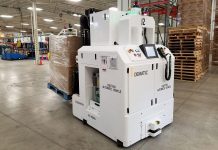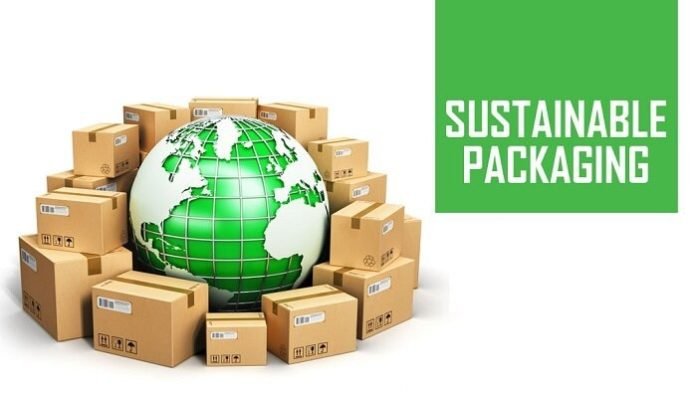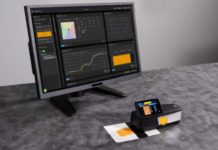Today’s sustainable packaging industry is being transformed by way of real-time data analytics, connected worker technology, and smart manufacturing, all of which help businesses make optimal use of their processes, reduce waste, and enhance efficiency. They happen to be the key to making packaging more environmentally in sync in a more practical as well as cost-effective way.
The Packaging Production Evolution
Packaging production has indeed come a long way, transforming itself from basic containers to sophisticated as well as sustainable solutions.
In the days that have gone by, packaging has been predominantly utilitarian, majorly focused on enclosing as well as protecting products. Materials such as glass and wood, as well as simple metals, were made use of in a common way. The design happened to be purely functional, with somewhat lesser consideration when it came to environmental impact or recycling.
In the present context, the landscape of packaging production has gone on to become enormously different. There happens to be a strong emphasis when it comes to sustainability, thereby leading to innovation in terms of biodegradable materials as well as recyclable options.
Modern packaging not only happens to be functional but, at the same time, is an extension of the brand experience, frequently featuring creative designs as well as user-friendly features. This new focus goes on to reflect as to how technology as well as consumer demands have gone on to get evolved, thereby pushing the sector towards greener practices.
Both consumer demand as well as environmental concerns happen to be driving companies to adopt methods and materials that are greener. This transformation is indeed reshaping the way the packaging industry leaders go on to think about their effect on the planet.
Real-time data analytics within the packaging arena
It is well to be noted that real-time data analytics indeed happen to be a game-changer when it comes to packaging production, thereby offering insights in terms of smarter, more sustainable functioning. It enables companies so as to spot issues quickly, plan maintenance effectively and efficiently, and make wise use of resources. These analytics are important for reducing waste and also enhance the green credentials of the sector.
Leading companies within the packaging landscape are already enjoying the benefits of real-time data analytics. They happen to be finding ways so as to make their operations efficient as well as environmentally friendly, thereby setting new standards when it comes to the industry.
For instance, the BPM approach of Infosys, in order to empower the packaging lines with data-driven solutions aims to integrate digital solutions like the Manufacturing Execution System- MES, Radio Frequency Identification- RFID and Global Positioning System- GPS sensors with the help of real-time analytics.
This integration elevates operational efficiency, decreases waste, as well as accelerates production. Big data analytics as well as AI in the packaging industry help in self-sufficient goods transportation, production volumes that are controlled, maintenance that’s planned, easy shift changes, AI-powered inspections, as well as machine learning for data labeling.
Connected worker tech
Connected worker tech happens to be all about enabling the workforce with digital tools as well as real-time information. It is indeed transforming how employees within the packaging landscape interact along with machinery, processes, as well as each other. This tech makes it easier for workers to partner as well as troubleshoot and, at the same time, make informed decisions.
Within the packaging sector, connected worker technology puts data as well as insights right into employees’ hands, pushing productivity and safety. Listed underneath are some practical examples as well as details of this technology in use:
- Worker safety that’s increased: In sectors such as plastic as well as packaging manufacturing, wherein the usage of toxic chemicals and also heavy machinery poses quite a prominent risk, connected worker technology happens to play a critical role when it comes to enhancing safety. The worker wearables automatically go on to detect and, at the same time, alert workers in relation to incorrect postures and also helping with timely corrections.
- Better productivity as well as efficiency: Connected worker platforms help access cloud-based systems as well as vital information by way of mobile as well as wearable devices. Connected worker platforms, which happen to be integrated with IoT systems, also help in terms of predictive maintenance, safeguarding from unexpected breakdowns, and enhancing productivity.
- Quality control with error reduction: These platforms go on to offer step-by-step guidance when it comes to packaging tasks, often by way of wearables or mobile applications. They go on to offer text, images, or even augmented reality overlays so as to help with the right procedures, thereby decreasing human errors. Real-time performance monitoring goes on to enable urgent feedback, thereby ensuring quality as well as reducing waste.
- Sustainability & energy efficiency: Connected worker technology helps with collecting real-time data concerning waste generation as well as energy consumption. This data is thereafter used so as to manage waste more perfectly and also correct energy issues, decreasing the carbon footprint as well as the environmental effects of plastic and packaging manufacturing.
- Inventory management: These platforms can track inventory levels in real-time, upgrading inventory as materials get used and sending alerts to beat stock-outs, thereby preventing production time from being lost.
These instances go on to illustrate how connected worker technology is indeed revolutionizing the plastic as well as packaging manufacturing sectors by way of bettering the safety, efficiency, sustainability, and overall productivity.
Manufacturing principles that are smart
Smart manufacturing happens to be all about being connected, responsive, as well as efficient. It goes on to gel IoT, AI, as well as real-time data in order to revolutionize production lines. The principles of smart manufacturing happen to be made to enhance the efficiency, adaptability, as well as overall performance of manufacturing processes. They have-
- Security: Making sure of broad, secure connectivity within the devices, processes, people, and businesses; protecting the integrity of the data and intellectual property; along with shielding against cyberattacks.
- Flat as well as real-time monitoring: Resources along with processes happen to be digitally integrated and tracked for almost real-time insights, fostering faster and more decentralized decision-making.
- Proactivity and semi-autonomous procedures: Going beyond the traditional way of reporting to proactive, predictive procedures that trigger decisions that are automated in routine situations as well as personnel intervention in non-routine scenarios.
- Open along with an interoperable ecosystem: Helping with a connected ecosystem of devices, people, systems, and services along with partners, helping communication across many platforms, and adopting integration standards when it comes to multi-vendor solutions.
- Orchestrated along with resilient plants: Adapting to edits with minimal intervention, seamless reconfiguration, as well as optimized process flows capable enough of maintaining business consistency by way of adaptability and modularity.
- Scalable operations: applicable throughout all functions, facilities, as well as the entire value chain, along with systems and resources that are completely editable so as to accommodate demands that are changing.
- Sustainable plus energy-efficient manufacturing: Making optimal resource use, reducing negative environmental effects, and ensuring socio-economic outcomes that are positive.
It is well to be noted that these principles happen to collectively better the important manufacturing KPIs such as improved speed, quality, throughput, cost efficiency, safety, reliability of assets, as well as energy productivity.
Applying smart manufacturing principles to sustainable packaging goes on to have smarter resource usage and less waste. It enables companies to quickly respond to market the market alterations and environmental issues. This approach is making the packaging sector more responsive when it comes to both business as well as ecological needs.
Synergy in terms of technologies leading to sustainable packaging
The synergy when it comes to real-time analytics, connected worker technology, as well as smart manufacturing is indeed shifting the sustainable packaging gamut. Working together, these techs go on to create a more effective, responsive, as well as sustainable production environment.
The total impact of these technologies in terms of environmental sustainability happens to be more profound. They happen to be enabling companies to decrease their carbon footprint, reduce waste, and use resources in a much better way.
Benefits such as real-time data and smart manufacturing
The advantages of real-time data tend to overlap with those of connected worker platforms because the simple reason that one goes on to lay the groundwork for the other. The perks of real-time data include:
- Enhanced efficiency: Technologies that help with real-time data streamline operations, decrease downtime, and push workflow.
- Decreased waste: By helping with precise control and tracking, these technologies majorly lessen material waste.
- Cost saving: The mix of improved efficiency and decreased waste goes on to have a substantial cost reduction.
- Elevated quality control: Real-time tracking technologies make sure of consistent product quality.
- Agility in terms of manufacturing: These technologies allow a quick adaptation to market demands and changes.
- Empowerment to employees: Workers go on to have better tools as well as information due to technologies that help them with real-time data, thereby leading to improved job satisfaction along with productivity.
- Environmental effect: Lower waste as well as efficient processes, due to real-time data technologies, go on to contribute to a smaller carbon footprint.
Outlook for the Future
In all probability, the future promises more advancements when it comes to technology, thereby leading to more innovative as well as sustainable packaging solutions. As new technologies come up, they will consistently reshape the industry, thereby making it efficient and environmentally friendly.
Emerging technologies are anticipated to play a key role when it comes to shaping the packaging sector, as they will drive innovation, efficiency, along with sustainability, thereby making sure that the industry not just meets the present environmental benchmarks but at the same time sets new standards for the future.
























